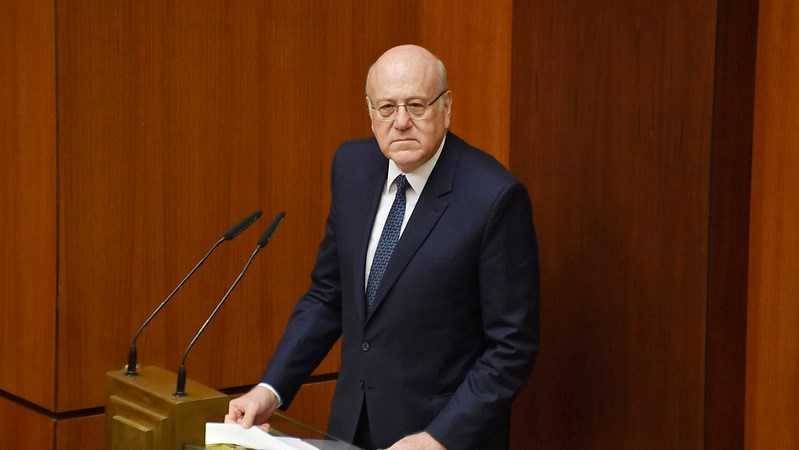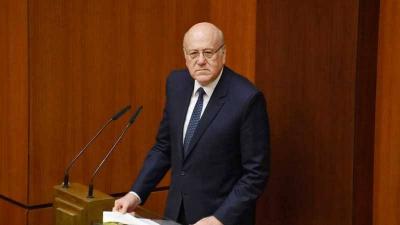The most important outcome of the parliamentary session was the acceptance of a one billion dollar donation from the European Union and the establishment of nine points (unanimously approved) as binding recommendations for the government. Key among these was the immediate deportation of Syrian refugees in Lebanon illegally, the formation of a ministerial committee to communicate with various parties, particularly the Syrian state to facilitate the return of refugees, in addition to securing Lebanese borders and restricting movement through legal crossings between Lebanon and Syria. Notably, President Najib Mikati expressed his commitment to the parliamentary recommendation, revealing his government's readiness to cooperate with the parliament, and urged the General Assembly to make the decision it believes is in the national interest.
Informed political sources indicated to "Al-Liwaa" that the parliamentary session did not deviate from expectations regarding issuing recommendations that require follow-up for addressing the Syrian displacement issue. They viewed the session as successful in addressing the file in form, while the one billion euro donation remained undecided, as the matter should be resolved within the government, since the council has no jurisdiction over the report.
These sources noted that the issued recommendation clarified the role that relevant parties should play in the issue, confirming the government's responsibility. They indicated that it can be stated that the chapter on the donation has been closed after the session concluded with points regarding the displacement dilemma, while the message from what transpired is directed to the European Union, the international community, and those concerned with this file.
Additionally, they considered that the presidential file remains unchanged regarding its transfer in discussions by the five-member committee, awaiting any new developments, which cannot be anticipated before clarifying the situation in Gaza, as has become evident. After the session, President Mikati headed to Manama to participate in the 33rd Arab League summit with a ministerial delegation that included: Abdullah Bou Habib (Minister of Foreign Affairs), Abbas Halabi (Minister of Education and Higher Education), Ziad Makary (Minister of Information), and Abbas al-Haj Hassan (Minister of Agriculture). He was received at Bahrain Airport by the representative of the King of Bahrain for humanitarian affairs and youth issues, Sheikh Nasser bin Hamad Al Khalifa.
Lebanese circles were occupied with knowing the agenda for Mikati's talks with the Syrian side based on the issued recommendations, and whether there is a possibility of a meeting with President Bashar al-Assad. While a Lebanese source confirmed that a meeting program with Syrian Prime Minister Hussein Arnous is in place, calls were made to understand the extent of understanding or coordination in Doha. Mikati's initial reception in his residence in Manama was with the Russian Special Envoy to the Middle East, Mikhail Bogdanov, whose country has special relations with Syria.
Parliamentarily, interventions did not reflect what was supposedly agreed upon, as bidding, political wrangling, and accusations were prominent in the parliamentary stances. The bidding reached the point of demanding a special session on the situation in the south, reiterating calls for electing a president before anything else. Some interventions sidelined the government despite the criticisms directed at it over the one billion euro donation, to the extent that some described it as a "bribe," directing blame toward the UN Refugee Agency and accusing the international community of working to keep the refugees in Lebanon.
The public hall during the discussion of Syrian displacement was not free from parliamentary disputes, particularly between MPs Jamil al-Sayyed and Paula Yacoubian over the latter’s remarks about funds being provided to organizations related to refugees. In another vein, President Najib Mikati responded to those who bombarded him with accusations regarding the European donation, confirming that it is unconditional, emphasizing that Lebanon cannot be a policeman for protecting the borders of any country, according to "Al-Liwaa."




